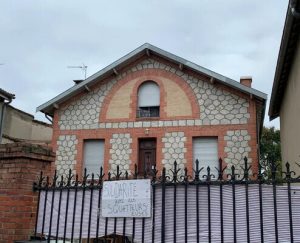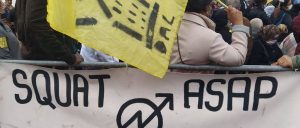 In September, an unoccupied house in Toulouse‘s Minimes district is squatted and, following legal proceedings, the occupants benefit from the winter truce (recently extended from March 31 to June 1 as part of the health crisis). These two months of extension alone trigger an update of the anti-squat media and political wave of recent months.
In September, an unoccupied house in Toulouse‘s Minimes district is squatted and, following legal proceedings, the occupants benefit from the winter truce (recently extended from March 31 to June 1 as part of the health crisis). These two months of extension alone trigger an update of the anti-squat media and political wave of recent months.
On February 7, the newspaper La Dépêche, published a miserable article on the “so-called” situation of Roland, a former employee of the same newspaper… The affair invaded social networks and media in the days that followed, leading to the massive presence of journalists, always there to defend the owners, possessors and other dominants.
Each time, it’s the same rhetoric, the same bogus story: old people who would be put out on the street by squatters. For them, the fable is attractive: it is the landlords who would be in misery and it is the squatters who would be at the origin of the evils of old age. Behind this fable, which plays on pathos, are clear objectives: to support the intensification of repression against squats by promoting new laws reinforcing the rights of landlords (ASAP law and other proposals to parliament). But no one is fooled: if some elderly people cannot afford the EPHAD (housing establishments for dependent elderly people) and others occupy empty houses, it is because the states and capitalism organize and maintain the misery of billions of people, elderly or not. [Read More]
 Utrecht (Netherlands) – Late Saturday evening the police nevertheless proceeded with an illegal eviction to protect the interests of the owner Caron Realestate & Management BV.
Utrecht (Netherlands) – Late Saturday evening the police nevertheless proceeded with an illegal eviction to protect the interests of the owner Caron Realestate & Management BV.






